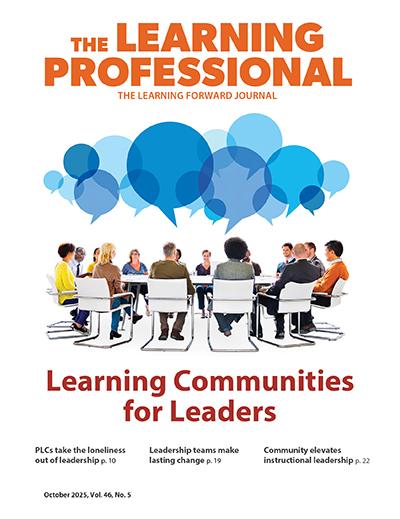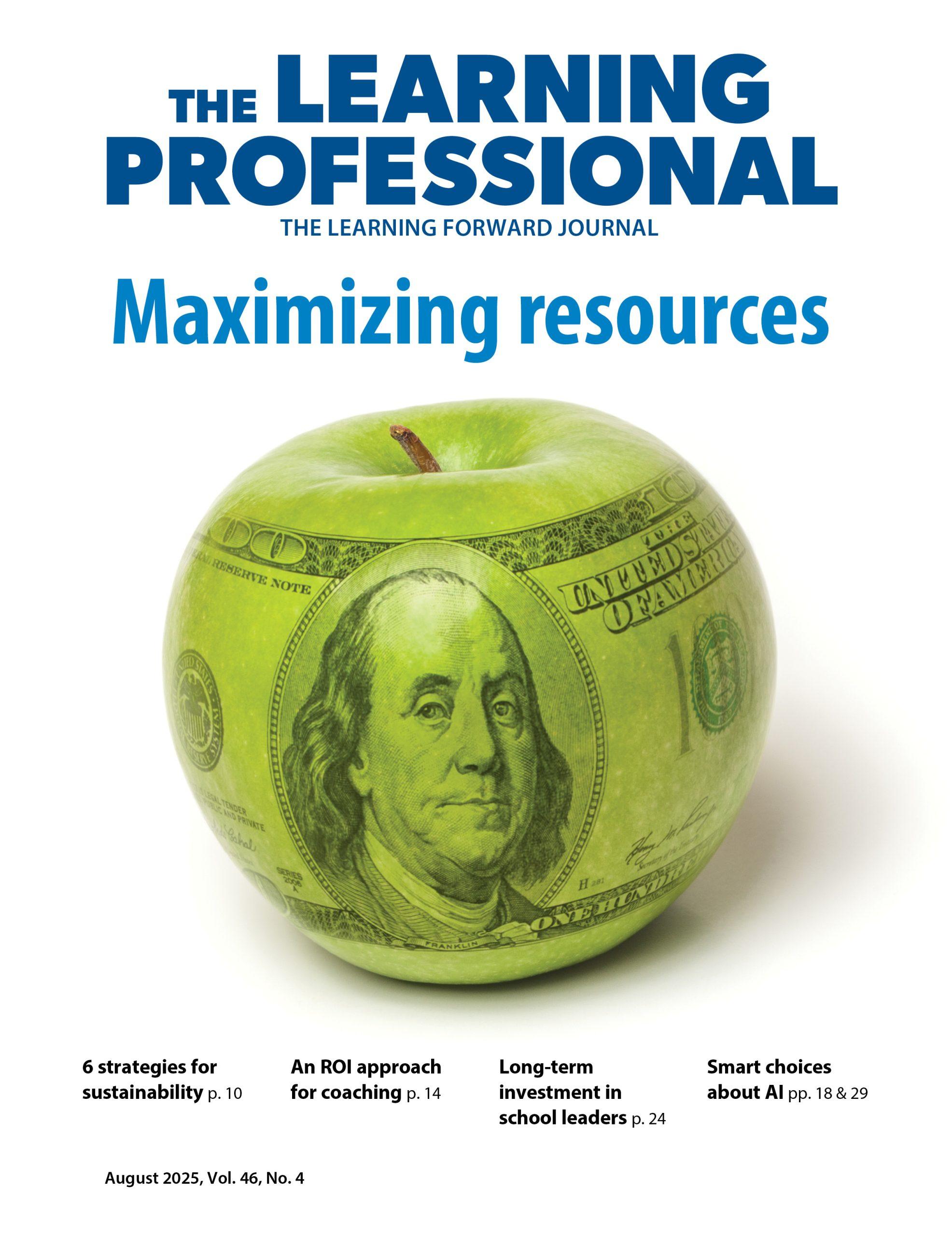FEATURE ARTICLE
Top 10 Learning Needs For Teacher Leaders
By Learning Forward
Categories: Teacher leadershipDecember 2014
Read the remaining content with membership access. Join or log in below to continue.
Sed ut perspiciatis unde omnis iste natus error sit voluptatem accusantium doloremque laudantium, totam rem aperiam, eaque ipsa quae ab illo inventore veritatis et quasi architecto beatae vitae dicta sunt explicabo. Nemo enim ipsam voluptatem quia voluptas sit aspernatur aut odit aut fugit, sed quia consequuntur magni dolores eos qui ratione voluptatem sequi nesciunt. Neque porro quisquam est, qui dolorem ipsum quia dolor sit amet, consectetur, adipisci velit, sed quia non numquam eius modi tempora incidunt ut labore et dolore magnam aliquam quaerat voluptatem.
References
Bain, A. (2007). The self-organizing school: Next generation comprehensive school reform. Landham, MD: Rowman & Littlefield Education.
Brown, K.M. (2004). Leadership for social justice and equity: Weaving a transformative framework and pedagogy. Educational Administration Quarterly, 40(1), 77-108.
Dana, N.F. & Yendol-Hoppey, D. (2009). The reflective educator’s guide to classroom research: Learning to teach and teaching to learn through practitioner inquiry (2nd ed.). Thousand Oaks, CA: Corwin Press.
Glickman, C.D., Gordon, S.P., & Ross-Gordon, J.M. (2014). Supervision and instructional leadership: A developmental approach. Boston, MA: Allyn & Bacon.
Gordon, S.P. (Ed.). (2008). Collaborative action research: Developing professional learning communities. New York, NY: Teachers College Press.
Gordon, S.P. (2011, November). Teacher leaders in 1990 and 2011: Their perceptions of attributes of effective teacher leaders as well as problems, support, and benefits associated with teacher leadership. Paper presented at the annual convention of the University Council of Educational Administration, Pittsburgh, PA.
Gordon, S.P., Jacobs, J., & Solis, R. (2013, April-May). Critical issues in teacher leadership: Phase I of a national study. Paper presented at the annual meeting of the American Educational Research Association, San Francisco, CA.
Hall, G.E. & Hord, S.M. (2006). Implementing change: Patterns, principles, and potholes. Boston, MA: Allyn & Bacon.
Jacobs, J., Gordon, S.P., & Solis, R. (2013, October). Critical issues in teacher leadership: A national look at teacher leader perceptions. Paper presented at the annual meeting of the Council of Professors of Instructional Supervision, University Park, PA.
Murtadha-Watts, K. & Stoughton, E. (2004). Critical cultural knowledge in special education: Reshaping the responsiveness of school leaders. Focus on Exceptional Children, 37(2), 1-8.
Stiegelbauer, S.M. (2008). The dimensions of learning: From plans to action. In S.P. Gordon (Ed.), Collaborative action research: Developing professional learning communities (pp. 112-133). New York, NY: Teachers College Press.
Learning Forward is the only professional association devoted exclusively to those who work in educator professional development. We help our members plan, implement, and measure high-quality professional learning so they can achieve success with their systems, schools, and students.
Categories: Teacher leadership
Recent Issues
MAXIMIZING RESOURCES
August 2025
This issue offers advice about making the most of professional learning...
MEASURING LEARNING
June 2025
To know if your professional learning is successful, measure educators’...
NAVIGATING NEW ROLES
April 2025
Whether you’re new to your role or supporting others who are new,...
LEARNING DESIGNS
February 2025
How we learn influences what we learn. This issue shares essential...












